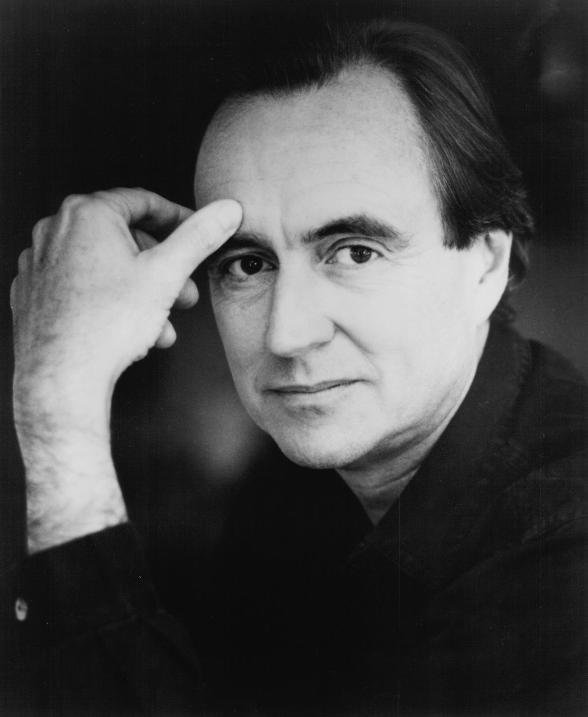SHOCKER: The Freudian Playground Of Wes Craven's Imagination
Wes Craven is gone but no one will have to worry about him being forgotten in horror history. As many astute commentators have pointed out in the wake of his passing, he made key influential films in this genre three consecutive decades: Last House On The Left and The Hills Have Eyes in the '70s, A Nightmare On Elm Street in the '80s and Scream in the '90s. Even if he made nothing else beyond those films, it would still be an impressive legacy. Critics point to how uneven Craven's overall body of work can be but perhaps this is a reflection of what a truly unique filmmaker he was. His methodology and ideas were so unorthodox that it was inevitable he wouldn't hit the bull's-eye every time out, particularly when such an unorthodox talent has to labor under the demands of the Hollywood film business. However, even his lesser films always have unique elements that make them worth a look for anyone seriously interested in his work.And that brings us to Shocker. This has always been a controversial entry in the Craven filmography, partially because the director announced his attentions to create a new franchise that could compete with the Nightmare On Elm Street series he had started but only had limited involvement with at the time. Both mainstream critics and horror press wrote it off as an unwieldy Freddy copycat but there is more going on here than it got credit for at the time and its uninhibited eccentricity and ambition has earned it a small cult with '80s horror fans.The premise for Shocker is surprisingly dense with detail and surreal for something purportedly designed to be commercial. Jonathan (Peter Berg) is a college-age football player who has a dream that Horace Pinker (Mitch Pileggi) is killing his mother and siblings. He awakens to discover the murders have happened and tries to use his dream-link with the killer to track him down over the objections of his police detective father Don (Mi
Critics point to how uneven Craven's overall body of work can be but perhaps this is a reflection of what a truly unique filmmaker he was. His methodology and ideas were so unorthodox that it was inevitable he wouldn't hit the bull's-eye every time out, particularly when such an unorthodox talent has to labor under the demands of the Hollywood film business. However, even his lesser films always have unique elements that make them worth a look for anyone seriously interested in his work.And that brings us to Shocker. This has always been a controversial entry in the Craven filmography, partially because the director announced his attentions to create a new franchise that could compete with the Nightmare On Elm Street series he had started but only had limited involvement with at the time. Both mainstream critics and horror press wrote it off as an unwieldy Freddy copycat but there is more going on here than it got credit for at the time and its uninhibited eccentricity and ambition has earned it a small cult with '80s horror fans.The premise for Shocker is surprisingly dense with detail and surreal for something purportedly designed to be commercial. Jonathan (Peter Berg) is a college-age football player who has a dream that Horace Pinker (Mitch Pileggi) is killing his mother and siblings. He awakens to discover the murders have happened and tries to use his dream-link with the killer to track him down over the objections of his police detective father Don (Mi chael Murphy).Jonathan succeeds, but not before Pinker murders his girlfriend Alison (Cami Cooper), and he vows to see Pinker die in the electric chair. Months later, that day comes but Pinker uses his voodoo knowledge of electronics to transcend his death and transform his spirit into a form of electrical power that can jump from outlet to outlet... or human body to human body. Jonathan must become a hero once more or face losing even more.
chael Murphy).Jonathan succeeds, but not before Pinker murders his girlfriend Alison (Cami Cooper), and he vows to see Pinker die in the electric chair. Months later, that day comes but Pinker uses his voodoo knowledge of electronics to transcend his death and transform his spirit into a form of electrical power that can jump from outlet to outlet... or human body to human body. Jonathan must become a hero once more or face losing even more. Shocker was roundly criticized for its overt similarities to A Nightmare On Elm Street: the supernatural serial killer, the use of dreams to fight the villain, a final showdown that blurs reality and dreams, etc. However, Shocker has more serious issues: the plotting feels cumbersome, with more characters and incidents that it can structure into a coherent arc (tellingly, it uses a couple of time-jumps, the latter one involving a t.v. reporter who has to tell us everything that happened between now and then). Craven also has trouble hitting the blend of dark drama and gonzo humor he's going for here, with the pendulum swinging back and forth between these extremes - sometimes in the same scene - in a way that will give viewers vertigo.
Shocker was roundly criticized for its overt similarities to A Nightmare On Elm Street: the supernatural serial killer, the use of dreams to fight the villain, a final showdown that blurs reality and dreams, etc. However, Shocker has more serious issues: the plotting feels cumbersome, with more characters and incidents that it can structure into a coherent arc (tellingly, it uses a couple of time-jumps, the latter one involving a t.v. reporter who has to tell us everything that happened between now and then). Craven also has trouble hitting the blend of dark drama and gonzo humor he's going for here, with the pendulum swinging back and forth between these extremes - sometimes in the same scene - in a way that will give viewers vertigo. That said, if you can look past the awkward structure and kitchen-sink plotting, Shocker has a lot of interesting things going on. Craven is basically using the horror film template of post-Nightmare On Elm Street '80s horror as an excuse to indulge in Freudian surrealism: bedrooms are recurrently used for primal scenes of violence, there are dueling father figures and a tormented son caught between them, the hero gets guidance from the ghosts of his loved ones (accompanied by water symbolism), and best of all, there is a wild finale in which hero and villain do battle inside the world of television.
That said, if you can look past the awkward structure and kitchen-sink plotting, Shocker has a lot of interesting things going on. Craven is basically using the horror film template of post-Nightmare On Elm Street '80s horror as an excuse to indulge in Freudian surrealism: bedrooms are recurrently used for primal scenes of violence, there are dueling father figures and a tormented son caught between them, the hero gets guidance from the ghosts of his loved ones (accompanied by water symbolism), and best of all, there is a wild finale in which hero and villain do battle inside the world of television. That's a lot of weirdness to cram into a horror film yet Shocker manages to pack it all in, even throwing in a heavy metal song soundtrack for good measure. Craven directs with vigor, using his studio budget to pile on both makeup and visual effects. He's backed up nicely by the sleek photography of Nightmare alum Jacques Haitkin and a nerve-jangling electronic score from William Goldstein. Berg brings a nice Method actor intensity to his troubled hero role and Pileggi has the time of his life as a scenery-devouring supernatural serial killer. The result of their labors might not always add up but they are memorably kinetic and weird.In short, Shocker is not the best of Craven's work but it is shot through with his obsessions from start to finish - and his fearless exploration of those obsessions make it fascinating, even when it doesn't work. If you're interested in exploring his filmography, it's a necessary stop on the journey.
That's a lot of weirdness to cram into a horror film yet Shocker manages to pack it all in, even throwing in a heavy metal song soundtrack for good measure. Craven directs with vigor, using his studio budget to pile on both makeup and visual effects. He's backed up nicely by the sleek photography of Nightmare alum Jacques Haitkin and a nerve-jangling electronic score from William Goldstein. Berg brings a nice Method actor intensity to his troubled hero role and Pileggi has the time of his life as a scenery-devouring supernatural serial killer. The result of their labors might not always add up but they are memorably kinetic and weird.In short, Shocker is not the best of Craven's work but it is shot through with his obsessions from start to finish - and his fearless exploration of those obsessions make it fascinating, even when it doesn't work. If you're interested in exploring his filmography, it's a necessary stop on the journey.


